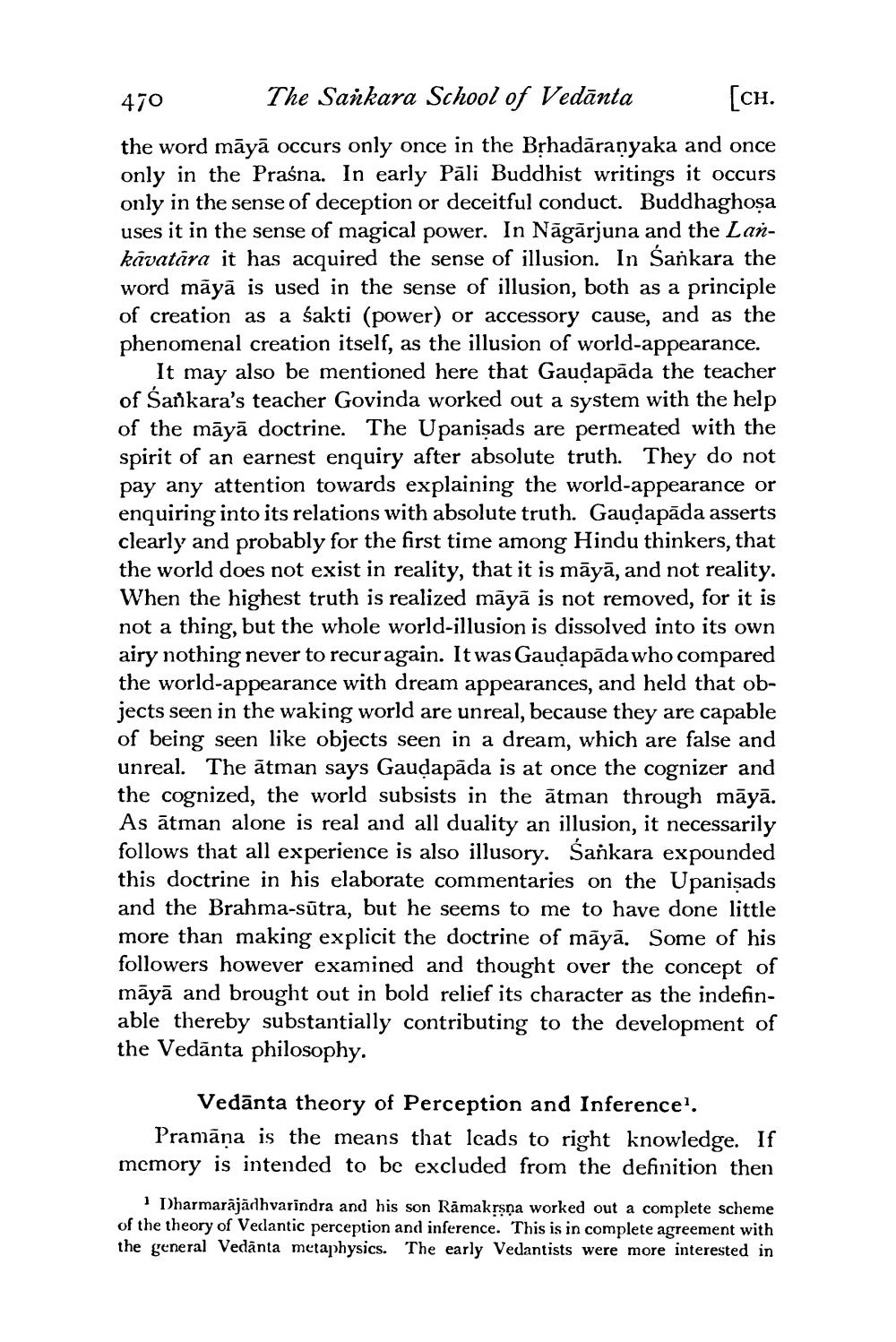________________
470
The Sankara School of Vedānta
[CH.
the word māyā occurs only once in the Brhadāranyaka and once only in the Praśna. In early Pāli Buddhist writings it occurs only in the sense of deception or deceitful conduct. Buddhaghosa uses it in the sense of magical power. In Nāgārjuna and the Lankavatāra it has acquired the sense of illusion. In Sankara the word māyā is used in the sense of illusion, both as a principle of creation as a sakti (power) or accessory cause, and as the phenomenal creation itself, as the illusion of world-appearance.
It may also be mentioned here that Gaudapāda the teacher of Sankara's teacher Govinda worked out a system with the help of the māyā doctrine. The Upanisads are permeated with the spirit of an earnest enquiry after absolute truth. They do not pay any attention towards explaining the world-appearance or enquiring into its relations with absolute truth. Gaudapāda asserts clearly and probably for the first time among Hindu thinkers, that the world does not exist in reality, that it is māyā, and not reality. When the highest truth is realized māyā is not removed, for it is not a thing, but the whole world-illusion is dissolved into its own airy nothing never to recur again. It was Gaudapāda who compared the world-appearance with dream appearances, and held that objects seen in the waking world are unreal, because they are capable of being seen like objects seen in a dream, which are false and unreal. The ātman says Gaudapāda is at once the cognizer and the cognized, the world subsists in the ātman through māyā. As ātman alone is real and all duality an illusion, it necessarily follows that all experience is also illusory. Sankara expounded this doctrine in his elaborate commentaries on the Upanisads and the Brahma-sūtra, but he seems to me to have done little more than making explicit the doctrine of māyā. Some of his followers however examined and thought over the concept of māyā and brought out in bold relief its character as the indefinable thereby substantially contributing to the development of the Vedānta philosophy.
Vedānta theory of Perception and Inference. Pramāņa is the means that Icads to right knowledge. If memory is intended to be excluded from the definition then
1 Dharmarājādhvarindra and his son Rāmakrsna worked out a complete scheme of the theory of Vedantic perception and inference. This is in complete agreement with the general Vedanta metaphysics. The early Vedantists were more interested in




